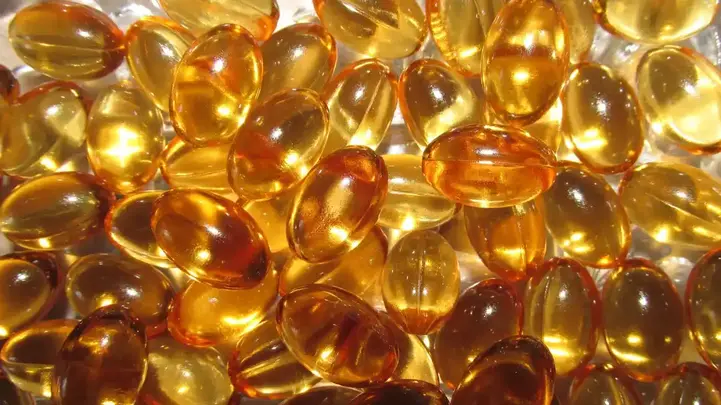The 4 best vitamins that doctors take during the virus season so that they do not get sick
Should you take vitamins in virus season? Here medical professionals share with us what they eat (and eat) for optimal nutrition during cold and flu season.
Show key points
- Vitamins play a crucial role in supporting the immune system, especially during cold and flu season.
- Vitamin E, a strong antioxidant, is best consumed through foods like nuts, seeds, and leafy greens, as excessive supplementation may be harmful.
- Although it doesn't prevent colds, vitamin C can shorten symptom duration and is best obtained through foods like citrus fruits, broccoli, and strawberries.
- ADVERTISEMENT
- Many healthcare professionals recommend vitamin D supplements since it's difficult to get enough from food alone, and it may help prevent the flu.
- Despite varying research, omega-3 fatty acids are valued by experts for their immune-boosting properties, particularly for those who don't eat fish.
- Some health professionals take targeted supplements like elderberry and Lypo-C during virus season for added immune defense.
- Overall, a balanced diet, sufficient sleep, and regular exercise are emphasized as essential components of a strong immune system.
Vitamins can help keep your immune system functioning so it can fight infection, especially during cold and flu season. When you're walking through the vitamin suite looking for the right immunity-boosting benefits, it can seem exhausting – that's why we've asked health professionals to share the few vitamins of their choice during virus season.
1. Vitamin E

Bander says vitamin E is a powerful antioxidant that can boost immune function.
"The best way to get vitamin E is through food," says Bandir, "Vitamin E deficiency is rare, so as with anything else, too much of it can be harmful. Excellent sources of vitamin E include seeds, nuts and nut butter; dark leafy vegetables, such as spinach and broccoli; fruits such as kiwi, tomatoes and mangoes; and wheat sprout oil.
Recommend
2. Vitamin C

Although vitamin C can't prevent colds according to the National Center for Complementary and Integrative Health, a 2017 study published in the journal Nutrients suggests that it remains a vital nutrient for a strong immune system.
"The best way to get enough vitamin C is through food, and those foods that are high in vitamin C include citrus fruits such as oranges, grapefruits and kiwi; cabbage-class vegetables like raw broccoli and Brussels sprouts; as well as strawberries, tomatoes and white potatoes," says Bandir.
In research published in 2021 in the journal BMJ Global Health, vitamins C and D were found to reduce the risk of acute respiratory infections and shorten the duration of symptoms. A 2022 compendium of multiple studies published in the journal Current Reviews in Clinical and Experimental Pharmacology also found that vitamin C can reduce the duration of respiratory infections.
In addition to your daily multivitamin, you take a supplement with elderberry, vitamin C, vitamin D and zinc during cold and flu season. (Bander adds that she sometimes takes Lypo-C, a vitamin C supplement that is said to be easily absorbed by the body.)
Michael Miller, M.D., a professor of cardiology at the University of Pennsylvania, tells The Healthy that he doesn't take a multivitamin (or any vitamin supplements) on a regular basis because it's best to get them naturally through your diet. However, when he gets sick, he sometimes gets vitamin C.
"I will take 2 grams of vitamin C supplements twice daily when I have a cold because vitamin C reduces symptoms and duration associated with a cold" "I've been doing this since medical school," Dr. Miller continues.
3. Vitamin D:

Many people don't get enough vitamin D in their diet, and it's hard to get that. That's why taking vitamin D supplements seems to rank high on the list for many medical professionals. In addition, a 2022 study in the journal Frontiers in Nutrition suggests that vitamin D can prevent flu.
"I make sure I get a good source of vitamins C, D and E in my diet through whole foods and supplements, so that I take vitamin D," says Palmer.
Like Palmer, Zhaoping Li, MD, professor of medicine and chair of clinical nutrition at the University of California, Berkeley, says she also takes vitamin D. Dr. Lee told The Healthy: "Of course, just as important – in order to achieve a healthy immune system – a balanced diet, adequate sleep and regular exercise.
4. Omega-3 fatty acids

Dr. Lee also regularly takes fish oil for its benefits on the immune system, although research according to the Cleveland Clinic tends to fluctuate over who and how much these supplements should take.
Depending on your diet, for example, if you don't eat fish, you may not get much of these nutrients. Taking omega-3 fatty acid supplements can be a good solution.
Palmer says she's prioritized good sources of omega-3 fatty acids in her diet for more than a decade. "I include mushrooms in my diet every day, and I eat a lot of fiber and probiotics as well as sources of omega-3 fatty acids as well," says Palmer.








